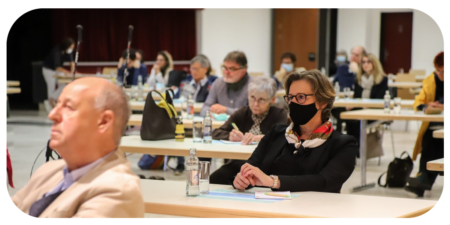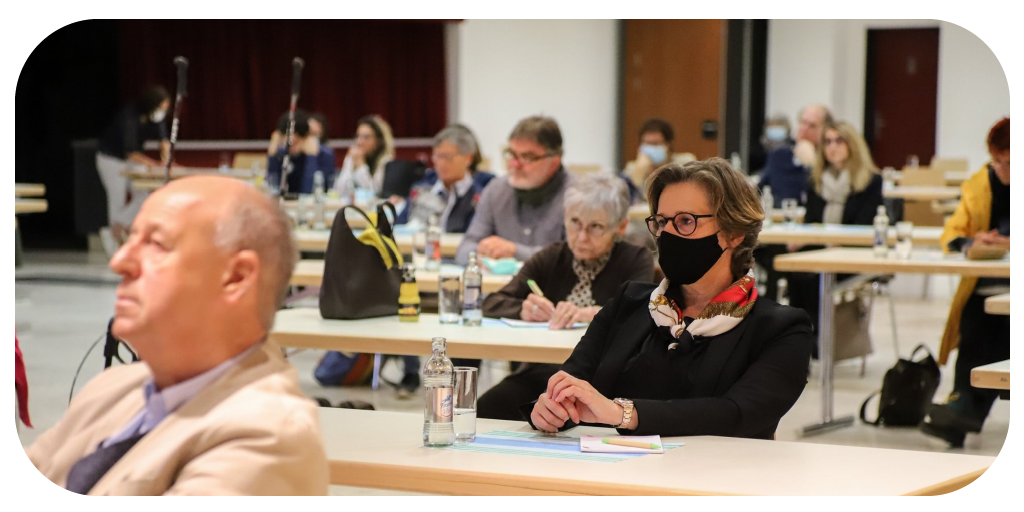
MS and Rehabilitation Conference in Luxembourg
11.12.2020Multidisciplinary care to improve the quality of life of people with the disease of a thousand faces
On 27 September 2020, the Luxembourgish MS Society organized its traditional autumn conference in a hybrid format (in live and digital) this year under the title: “Multiple sclerosis and rehabilitation”.
The event attracted around 80 participants on-site: people with multiple sclerosis, relatives, and (future) professionals. In the current circumstances characterized by the global pandemic and the need for social distancing as well as to protect its members, the Luxembourgish MS Society offered the opportunity to follow the event live on social networks (Facebook and Youtube) which has been a great success.

The importance of rehabilitation in MS
Holistic and multidisciplinary care at the level of rehabilitation is important for people with Multiple Sclerosis, given that MS is a chronic neurological disease with no cure, which can have very diverse repercussions on the daily life of patients depending on their individual disease course.
Topics and speaker line-up
What are the elements of this multidisciplinary care in Luxembourg? When should you consider a stay in rehabilitation? What lifestyle measures can we adopt to reduce or better manage the symptoms of multiple sclerosis? These were just a few of the questions discussed by the conference speakers:
- Prof. Dr. med. Christian Dettmers, Neurologist at Kliniken Schmieder Konstanz and member of the RIMS board (rehabilitation in MS), speaker via video conference
- Dr. Marguerite Leches, specialist in physical medicine and rehabilitation, Functional assessment and rehabilitation service, Centre Hospitalier de Luxembourg
- Dr. Thierry Debugne, specialist in physical medicine and rehabilitation at the Rehazenter Kirchberg

The participants were given information on the general objectives of rehabilitation in multiple sclerosis treatment as well as on the management of fatigue and bladder problems in particular. Indeed, these two very disabling symptoms affect a majority of people with multiple sclerosis and are among the responsible causes for decreasing the capacities for active professional and social participation.
 Your Account
Your Account


